Studi di storia
open access | peer reviewed
Aims & Scope
The series, co-ordinated by Laura Cerasi, Mario Infelise and Anna Rapetti, aims to host studies on medieval, modern and contemporary history, ranging from the local dimension of Venetian and Veneto history to the broader dimension of European and non-European history. Studi di storia intends to devote special attention to research that adopts an interdisciplinary perspective of investigation and is open to contacts with the social sciences. It will include publications arising from Ca’ Foscari’s research activities and publications by Italian and foreign scholars and institutions that contribute to highlighting the University’s network of national and international collaborations in the field of history.
Permalink doi.org | e-ISSN 2610-9107 | ISSN 2610-9883 | Language de, en, fr, it | ANCE E238407
Subseries
Strumenti
e-ISSN
2610-9115
Copyright This is an open-access work distributed under the terms of the Creative Commons Attribution License (CC BY). The use, distribution or reproduction is permitted, provided that the original author(s) and the copyright owner(s) are credited and that the original publication is cited, in accordance with accepted academic practice. The license allows for commercial use. No use, distribution or reproduction is permitted which does not comply with these terms.
Latest published volume

- Dietro le quinte dell’Impero
- Biografie e prosopografie nell’Europa napoleonica
- Valentina Dal Cin
- Oct. 27, 2025
- This volume offers an innovative historiographical perspective on the Napoleonic era by shifting the focus from its most prominent figures to the lives of lesser-studied actors. Building on the view of the Grand Empire as a collective enterprise, it argues that its political, institutional, socioeconomic, and cultural dynamics can only be fully understood by examining the contributions of mid-level public officials, politicians, intellectuals, military officers, and merchants. Through seven case studies, the book examines the multifaceted careers of individuals active in diverse contexts, including Italians serving in both Italy and France and French officials working in Italy. Their trajectories reveal how they contributed to the consolidation of Napoleonic power and capitalized on the opportunities created by the regime. After its collapse, many of them emerged as agents of continuity in a period of profound instability, shaping European society well into the Restoration. Transcending rigid politico-institutional boundaries, the book offers a nuanced and distinctive account of the interplay between society and the individuals who both shaped and experienced this transformative era.
- 0 download 187 search
- Il mondo nuovo
- Valentina Dal Cin
- The New World
- 18 download 361 search
- La svolta di fine pontificato
- Raffaella Perin
- Pius XI in the European crisis | Pius XI. im kontext der Europäischen Krise
- 13 download 997 search
- «¡Viva España! ¡Viva Cristo Rey!»
- Gianmaria Zamagni
- Pius XI in the European crisis | Pius XI. im kontext der Europäischen Krise
- 17 download 616 search
- Elia Dalla Costa e il fascismo italiano (1923-1943)
- Enrico Baruzzo
- Pius XI in the European crisis | Pius XI. im kontext der Europäischen Krise
- 5 download 326 search
- La donna, i bambini e la famiglia nella condanna vaticana del totalitarismo sovietico negli anni Venti e Trenta
- Laura Pettinaroli
- Pius XI in the European crisis | Pius XI. im kontext der Europäischen Krise
- 6 download 301 search
- Das Staat-Kirche-Verhältnis in Bayern nach dem Ersten Weltkrieg
- Florian Heinritzi
- Pius XI in the European crisis | Pius XI. im kontext der Europäischen Krise
- 4 download 269 search
- Introduzione
- Raffaella Perin
- Pius XI in the European crisis | Pius XI. im kontext der Europäischen Krise
- 8 download 275 search
- Papst – Krise – Historiographie
- Hubert Wolf
- Pius XI in the European crisis | Pius XI. im kontext der Europäischen Krise
- 8 download 335 search
- Le illusioni di Pio XI di fronte alla rivoluzione nazista (1933-1934)
- Marie Levant
- Pius XI in the European crisis | Pius XI. im kontext der Europäischen Krise
- 17 download 324 search
- La questione della Palestina
- Paolo Zanini
- Pius XI in the European crisis | Pius XI. im kontext der Europäischen Krise
- 9 download 326 search
- Reform der Weltkirche durch Reform der theologischen Studien
- Klaus Unterburger
- Pius XI in the European crisis | Pius XI. im kontext der Europäischen Krise
- 5 download 290 search
- Un ponte tra il vecchio e il nuovo mondo
- Paolo Valvo
- Pius XI in the European crisis | Pius XI. im kontext der Europäischen Krise
- 13 download 395 search
- Pius XI. und Pius XII.
- Sascha Hinkel
- Pius XI in the European crisis | Pius XI. im kontext der Europäischen Krise
- 3 download 284 search
- Plädoyer für die künftige Beschäftigung mit dem Pontifikat Pius‘ XI.
- Dominik Burkard
- Pius XI in the European crisis | Pius XI. im kontext der Europäischen Krise
- 3 download 280 search
- Un filo invisibile: la recezione di Pio XI nel clero italiano prima e dopo la seconda guerra mondiale
- Patrizia Luciani
- Pius XI in the European crisis | Pius XI. im kontext der Europäischen Krise
- 8 download 327 search
- Il pontificato di Pio XI e la violenza politica
- Lucia Ceci
- Pius XI in the European crisis | Pius XI. im kontext der Europäischen Krise
- 14 download 336 search
- Il ripensamento dell’antisemitismo da parte di Pio XI
- Giovanni Vian
- Pius XI in the European crisis | Pius XI. im kontext der Europäischen Krise
- 9 download 289 search
- Pio XI dalla ‘bianca Brianza’ al governo della Chiesa universale
- Raffaella Perin
- Pius XI in the European crisis | Pius XI. im kontext der Europäischen Krise
- 8 download 429 search
- Pius XI. – ein europäischer Papst?
- Verena Bull
- Pius XI in the European crisis | Pius XI. im kontext der Europäischen Krise
- 31 download 311 search
- La conclusione del lavoro
- Costanza Diciommo
- Guide to the Graduation Thesis in History
- 48 download 419 search
- L'accesso alle risorse
- Costanza Diciommo
- Guide to the Graduation Thesis in History
- 120 download 540 search
- La stesura dell'elaborato: criteri generali e regole redazionali
- Costanza Diciommo
- Guide to the Graduation Thesis in History
- 41 download 343 search
- La schedatura del materiale
- Costanza Diciommo
- Guide to the Graduation Thesis in History
- 124 download 610 search
- La tesi di laurea e la ricerca storica
- Costanza Diciommo
- Guide to the Graduation Thesis in History
- 74 download 471 search
- Bibliografia
- Costanza Diciommo
- Guide to the Graduation Thesis in History
- 27 download 321 search
- Historiae
- Claudio Azzara, Ermanno Orlando, Marco Pozza, Alessandra Rizzi
- Historiae
- 10 download 426 search
- Die lehramtliche Verurteilung des «Mythus des 20. Jahrhunderts»
- Dominik Burkard
- Pius XI in the European crisis | Pius XI. im kontext der Europäischen Krise
- 73 download 426 search
- Premessa
- Alessandra Rizzi
- Guide to the Graduation Thesis in History
- 16 download 161 search
- Bibliografia
- Venice and the Peloponnese, 992-1718
- 2 download 30 search
- Un imprenditore al servizio dello Stato napoleonico: Stefano Majnoni (1756-1826)
- Stefano Levati
- Dietro le quinte dell’Impero
- 1 download 29 search
- Carlo Marieni, tra rivoluzione e restaurazione
- Cecilia Carnino
- Dietro le quinte dell’Impero
- 2 download 33 search
- Carlo Lauberg fra farmacia e politica: una militanza nascosta, ma non dimenticata
- Paolo Conte
- Dietro le quinte dell’Impero
- 1 download 23 search
- Riflessioni biografiche ed esperienze doganali sotto l’Impero (Italia, 1805-11)
- Elisa Baccini
- Dietro le quinte dell’Impero
- 3 download 42 search
- Un nobile «troppo repubblicano»
- Giacomo Girardi
- Dietro le quinte dell’Impero
- 2 download 36 search
- Alla ricerca del bibliotecario repubblicano: logiche e pratiche di reclutamento nell’Italia Cisalpina (1797-1802)
- Francesco Dendena
- Dietro le quinte dell’Impero
- 1 download 23 search
- Costruire e ricostruire una carriera attraverso le cesure politiche: Carlo Camillo Trompeo
- Valentina Dal Cin
- Dietro le quinte dell’Impero
- 1 download 27 search
- Introduzione
- Valentina Dal Cin
- Dietro le quinte dell’Impero
- 69 download 196 search
- Table of Contents
- Printing R-Evolution and Society 1450-1500
- 12 download 110 search
- 1 · L’oggetto di studio
- Dec. 5, 2023 | Una sociabilità laicizzata
- 5 download 78 search
- 13 · I braccianti bonificatori
- Dec. 5, 2023 | Una sociabilità laicizzata
- 5 download 85 search
- 8 · I paesi in chiesa: l’associazionismo devozionale
- Dec. 5, 2023 | Una sociabilità laicizzata
- 7 download 95 search
- 5 · I costumi paesani: il contadino corrotto
- Dec. 5, 2023 | Una sociabilità laicizzata
- 5 download 102 search
- 4 · I costumi paesani: la vita familiare e comunitaria, a confronto con le nuove generazioni
- Dec. 5, 2023 | Una sociabilità laicizzata
- 19 download 154 search
- Bibliografia
- Dec. 5, 2023 | Una sociabilità laicizzata
- 5 download 83 search
- 7 · I paesi in chiesa: i fabbricieri, un notabilato al tramonto
- Dec. 5, 2023 | Una sociabilità laicizzata
- 6 download 83 search
- 2 · Una città e le sue campagne benedette dal Po
- Dec. 5, 2023 | Una sociabilità laicizzata
- 7 download 86 search
- 3 · I costumi paesani: da un campanile all’altro
- Dec. 5, 2023 | Una sociabilità laicizzata
- 6 download 88 search
- 14 · La casa civica rossa: un modello di solidarietà bracciantile
- Dec. 5, 2023 | Una sociabilità laicizzata
- 3 download 97 search
- 11 · La rottura del conformismo religioso
- Dec. 5, 2023 | Una sociabilità laicizzata
- 2 download 74 search
- 10 · Piazze laiche: La scoperta popolare della politica
- Dec. 5, 2023 | Una sociabilità laicizzata
- 5 download 95 search
- 9 · Piazze laiche: il tempo del divertimento
- Dec. 5, 2023 | Una sociabilità laicizzata
- 2 download 88 search
- 12 · La cooperativa nella risaia
- Dec. 5, 2023 | Una sociabilità laicizzata
- 8 download 79 search
- 6 · I paesi in chiesa: il buon prete
- Dec. 5, 2023 | Una sociabilità laicizzata
- 5 download 84 search
- 3 • Vorbild, Konkurrent und Partner: das wirtschaftliche Interesse Österreichs an der Schweiz nach dem Siebenjährigen Krieg
- Oct. 4, 2023 | Karl von Zinzendorf, Tagebuch einer kommerziellen Studienreise durch die Schweiz
- 5 download 142 search
- Glossar: Titel, Funktionen und Institutionen
- Oct. 4, 2023 | Karl von Zinzendorf, Tagebuch einer kommerziellen Studienreise durch die Schweiz
- 12 download 105 search
- Nota introduttiva / Vorbemerkung
- Oct. 4, 2023 | Karl von Zinzendorf, Tagebuch einer kommerziellen Studienreise durch die Schweiz
- 33 download 220 search
- 1 • La Svizzera, Venezia e il diario del conte Zinzendorf
- Antonio Trampus
- Oct. 4, 2023 | Karl von Zinzendorf, Tagebuch einer kommerziellen Studienreise durch die Schweiz
- 7 download 156 search
- 2 • Anmerkungen zur Textedition
- Oct. 4, 2023 | Karl von Zinzendorf, Tagebuch einer kommerziellen Studienreise durch die Schweiz
- 2 download 115 search
- 5 • Geld, Maße, Gewichte
- Oct. 4, 2023 | Karl von Zinzendorf, Tagebuch einer kommerziellen Studienreise durch die Schweiz
- 18 download 186 search
- Tagebuch der Studienreise durch die Schweiz (Juni-Oktober 1764)
- Oct. 4, 2023 | Karl von Zinzendorf, Tagebuch einer kommerziellen Studienreise durch die Schweiz
- 3 download 140 search
- 4 • Schweizer Territorien und Institutionen im 18. Jahrhundert
- Oct. 4, 2023 | Karl von Zinzendorf, Tagebuch einer kommerziellen Studienreise durch die Schweiz
- 25 download 166 search
- 3 • «L’unico ristoro alla mia afflittissima vita»
- April 13, 2023 | Women’s Matters
- 6 download 126 search
- 4 • Riflessioni conclusive
- April 13, 2023 | Women’s Matters
- 10 download 190 search
- 2 • «Un colpo sì fiero alla gloria di questa Real Casa»
- April 13, 2023 | Women’s Matters
- 16 download 347 search
- Appendice documentaria
- April 13, 2023 | Women’s Matters
- 10 download 198 search
- 1 • Una storia ancora da scrivere
- April 13, 2023 | Women’s Matters
- 11 download 209 search
- 10 • Gli ordini mendicanti nei territori veneziani della Messenia (1209-1500)
- Dec. 20, 2021 | Venice and the Peloponnese, 992-1718
- 31 download 259 search
- 1 • Il Peloponneso sulle rotte navali tra Medioevo ed Età Moderna
- Dec. 20, 2021 | Venice and the Peloponnese, 992-1718
- 13 download 187 search
- 8 • La vita civile nei territori veneziani di Corone e Modone (1207-1500)
- Dec. 20, 2021 | Venice and the Peloponnese, 992-1718
- 15 download 183 search
- 5 • L’ampliamento dei diretti domini veneziani nel Peloponneso (secoli XIV-XV)
- Dec. 20, 2021 | Venice and the Peloponnese, 992-1718
- 14 download 159 search
- 7 • La sosta a Modone nelle relazioni dei viaggiatori in Terrasanta (secoli XIV-XVI)
- Dec. 20, 2021 | Venice and the Peloponnese, 992-1718
- 10 download 173 search
- 6 • Note storiografiche sulla Messenia veneziana (1207-1500)
- Dec. 20, 2021 | Venice and the Peloponnese, 992-1718
- 14 download 186 search
- 2 • Geografia storica delle terre marittime del Peloponneso (secoli XII-XVI)
- Dec. 20, 2021 | Venice and the Peloponnese, 992-1718
- 15 download 185 search
- 11 • La comunità ebraica in Modone e Corone (1334-1500)
- Dec. 20, 2021 | Venice and the Peloponnese, 992-1718
- 17 download 163 search
- 4 • La politica veneziana nel Peloponneso subito dopo la Quarta Crociata (1204-1209)
- Dec. 20, 2021 | Venice and the Peloponnese, 992-1718
- 17 download 207 search
- 9 • Vigne, vitigni, uva, mosto e vini a Corone e Modone (1289-1500)
- Dec. 20, 2021 | Venice and the Peloponnese, 992-1718
- 19 download 233 search
- 14 • A mo’ di conclusione
- Dec. 20, 2021 | Venice and the Peloponnese, 992-1718
- 9 download 183 search
- 12 • L’isola di Sapienza in dialogo con biblioteche e archivi italiani
- Dec. 20, 2021 | Venice and the Peloponnese, 992-1718
- 23 download 189 search
- Introduzione
- Dec. 20, 2021 | Venice and the Peloponnese, 992-1718
- 24 download 240 search
- 12 • Le fortificazioni di Modone
- Dec. 20, 2021 | Venice and the Peloponnese, 992-1718
- 17 download 180 search
- 3 • I Veneziani nel Peloponneso bizantino (992-1204)
- Dec. 20, 2021 | Venice and the Peloponnese, 992-1718
- 100 download 172 search
- Introduzione
- Dec. 17, 2021 | Prelude to the Ghetto of Venice
- 51 download 260 search
- 7 • Mestre e Venezia (sec. XV-XVI)
- Dec. 17, 2021 | Prelude to the Ghetto of Venice
- 33 download 210 search
- 5 • I pontefici, da Martino V a Niccolò V (1417-1455)
- Dec. 17, 2021 | Prelude to the Ghetto of Venice
- 84 download 221 search
- 12 • Preludio al Ghetto
- Dec. 17, 2021 | Prelude to the Ghetto of Venice
- 53 download 252 search
- 9 • Iberici, ebrei e marrani nel Levante, in Puglia e a Venezia
- Dec. 17, 2021 | Prelude to the Ghetto of Venice
- 108 download 265 search
- 1 • Ebrei tracciati a Venezia (sec. XIII-XIV)
- Dec. 17, 2021 | Prelude to the Ghetto of Venice
- 34 download 221 search
- 11 • La guerra antimperiale (1511-1515)
- Dec. 17, 2021 | Prelude to the Ghetto of Venice
- 39 download 248 search
- 8 • Gli ottomani
- Dec. 17, 2021 | Prelude to the Ghetto of Venice
- 41 download 241 search
- 6 • Le città suddite (seconda metà del sec. XV)
- Dec. 17, 2021 | Prelude to the Ghetto of Venice
- 56 download 200 search
- 2 • I primi insediamenti in Terraferma
- Dec. 17, 2021 | Prelude to the Ghetto of Venice
- 47 download 230 search
- 3 • Il dogato di Tommaso Mocenigo (1414-1423)
- Dec. 17, 2021 | Prelude to the Ghetto of Venice
- 35 download 285 search
- 4 • Il dogato di Francesco Foscari (1423-1457)
- Dec. 17, 2021 | Prelude to the Ghetto of Venice
- 32 download 216 search
- 10 • L’Università ebraica, da Mestre Agnadello (1509)
- Dec. 17, 2021 | Prelude to the Ghetto of Venice
- 22 download 231 search
- 6 Ricezione e fortuna
- March 27, 2020 | Eric J. Hobsbawm between British Marxism and Italian Communism
- 29 download 192 search
- 3 1956
- March 27, 2020 | Eric J. Hobsbawm between British Marxism and Italian Communism
- 25 download 204 search
- 5 … e di Gramsci
- March 27, 2020 | Eric J. Hobsbawm between British Marxism and Italian Communism
- 32 download 135 search
- 0 Introduzione
- March 27, 2020 | Eric J. Hobsbawm between British Marxism and Italian Communism
- 46 download 267 search
- 2 La scoperta dell’Italia
- March 27, 2020 | Eric J. Hobsbawm between British Marxism and Italian Communism
- 44 download 228 search
- 4 Nel segno di Marx
- March 27, 2020 | Eric J. Hobsbawm between British Marxism and Italian Communism
- 45 download 358 search
- 1 Il ritorno dalla guerra
- March 27, 2020 | Eric J. Hobsbawm between British Marxism and Italian Communism
- 56 download 503 search
- 29 La Biblioteca pubblica veneziana e gli incunaboli miniati
- Susy Marcon
- Feb. 24, 2020 | Printing R-Evolution and Society 1450-1500
- 32 download 385 search
- 11 Acquisizioni e asportazioni alla caduta della Repubblica di Venezia
- Elisabetta Sciarra
- Feb. 24, 2020 | Printing R-Evolution and Society 1450-1500
- 32 download 428 search
- 13 Le collezioni di incunaboli delle biblioteche annesse ai monumenti nazionali, come tutelarle e fare ricerca: Santa Scolastica a Subiaco
- Pasqualino Avigliano, Andrea Cappa, Andrea De Pasquale, Cristina Dondi, Adalbert Roth, Marina Venier
- Feb. 24, 2020 | Printing R-Evolution and Society 1450-1500
- 27 download 446 search
- 10 La formazione delle raccolte marciane
- Alessia Giachery
- Feb. 24, 2020 | Printing R-Evolution and Society 1450-1500
- 45 download 403 search
- 9 Hebrew Incunabula in the National Library of Israel as a Source for Early Modern Book History in Europe and Beyond
- Alexander Gordin
- Feb. 24, 2020 | Printing R-Evolution and Society 1450-1500
- 168 download 835 search
- 28 The Decoration and Illustration of Venetian Incunabula
- Lilian Armstrong
- Feb. 24, 2020 | Printing R-Evolution and Society 1450-1500
- 35 download 400 search
- 22 Da Vespasiano da Bisticci a Franz Renner e Bartolomeo Lupoto
- Lorenz Böninger
- Feb. 24, 2020 | Printing R-Evolution and Society 1450-1500
- 43 download 417 search
- 16 Patterns of Consumption in Renaissance Venice
- Isabella Cecchini
- Feb. 24, 2020 | Printing R-Evolution and Society 1450-1500
- 27 download 424 search
- 25 The Memmingen Book Network
- Claire Bolton
- Feb. 24, 2020 | Printing R-Evolution and Society 1450-1500
- 30 download 510 search
- 19 Il commercio degli incunaboli a Padova nel 1480: il Quaderneto di Antonio Moretto
- Ester Peric
- Feb. 24, 2020 | Printing R-Evolution and Society 1450-1500
- 17 download 199 search
- Digital Tools and Catalogues
- Feb. 24, 2020 | Printing R-Evolution and Society 1450-1500
- 48 download 446 search
- 20 From the Corpus Iuris to ‘psalterioli da puti’, on Parchment, Bound, Gilt... The Price of Any Book Sold in Venice 1484-1488
- Cristina Dondi
- Feb. 24, 2020 | Printing R-Evolution and Society 1450-1500
- 15 download 293 search
- 21 «Con un altro piccolo Indice in 4° bislungo»
- Sara Mansutti
- Feb. 24, 2020 | Printing R-Evolution and Society 1450-1500
- 53 download 441 search
- 26 Sellers and Buyers of the Lyon Book Market in the Late 15th Century
- Monique Hulvey
- Feb. 24, 2020 | Printing R-Evolution and Society 1450-1500
- 129 download 723 search
- 4 Printing the Law in the 15th Century
- Maria Alessandra Panzanelli-Fratoni
- Feb. 24, 2020 | Printing R-Evolution and Society 1450-1500
- 26 download 374 search
- 24 «Emptus Ferrarie». I prezzi del libro a stampa nella città estense fra Quattro e primi del Cinquecento
- Paolo Tinti
- Feb. 24, 2020 | Printing R-Evolution and Society 1450-1500
- 73 download 586 search
- 5 La stampa medico-scientifica nell’Europa del XV secolo
- Sabrina Minuzzi
- Feb. 24, 2020 | Printing R-Evolution and Society 1450-1500
- 14 download 319 search
- 15 Bringing American Collections into MEI
- John Lancaster
- Feb. 24, 2020 | Printing R-Evolution and Society 1450-1500
- 69 download 487 search
- 8 Not Wanderers but Faithful Companions
- Marco Bertagna
- Feb. 24, 2020 | Printing R-Evolution and Society 1450-1500
- 31 download 313 search
- 1 Foreword
- Kristian Jensen
- Feb. 24, 2020 | Printing R-Evolution and Society 1450-1500
- 39 download 304 search
- 34 A New Tool for Describing Provenance Images
- Marieke van Delft
- Feb. 24, 2020 | Printing R-Evolution and Society 1450-1500
- 129 download 1090 search
- 33 The Incunabula Short Title Catalogue (ISTC)
- John Goldfinch, Karen Limper-Herz
- Feb. 24, 2020 | Printing R-Evolution and Society 1450-1500
- 31 download 417 search
- 32 Visual Interpretation of the ISTC
- Gregory Prickman
- Feb. 24, 2020 | Printing R-Evolution and Society 1450-1500
- 22 download 314 search
- 23 «Heredes de Plauto stampadore deno avere infrascritte robe e dinari»
- Elena Gatti
- Feb. 24, 2020 | Printing R-Evolution and Society 1450-1500
- 12 download 161 search
- Cited Incunabula
- Feb. 24, 2020 | Printing R-Evolution and Society 1450-1500
- 19 download 346 search
- 14 How Provenance Marks from Lithuanian Incunabula are Contributing to Historical Narrative
- Viktorija Vaitkevičiūtė, Agnė Zemkajutė
- Feb. 24, 2020 | Printing R-Evolution and Society 1450-1500
- 118 download 664 search
- 30 The Use and Reuse of Printed Illustrations in 15th-Century Venetian Editions
- Cristina Dondi, Abhishek Dutta, Matilde Malaspina, Andrew Zisserman
- Feb. 24, 2020 | Printing R-Evolution and Society 1450-1500
- 65 download 498 search
- 7 Printing in Greek before Aldus Manutius
- Geri Della Rocca de Candal
- Feb. 24, 2020 | Printing R-Evolution and Society 1450-1500
- 29 download 340 search
- 2 The ERC: Funding Organisation and European Project
- Martin Stokhof
- Feb. 24, 2020 | Printing R-Evolution and Society 1450-1500
- 100 download 473 search
- 3 Introduction
- Cristina Dondi
- Feb. 24, 2020 | Printing R-Evolution and Society 1450-1500
- 11 download 377 search
- 12 ll contributo del CRELEB e della Regione Lombardia alla catalogazione in MEI
- Edoardo Barbieri
- Feb. 24, 2020 | Printing R-Evolution and Society 1450-1500
- 48 download 556 search
- 31 The Essling LOD Project
- Ilaria Andreoli, Ilenia Maschietto
- Feb. 24, 2020 | Printing R-Evolution and Society 1450-1500
- 47 download 392 search
- 18 Costs We Don’t Think About
- Neil Harris
- Feb. 24, 2020 | Printing R-Evolution and Society 1450-1500
- 10 download 165 search
- Names and Places
- Feb. 24, 2020 | Printing R-Evolution and Society 1450-1500
- 14 download 240 search
- Provenance
- Feb. 24, 2020 | Printing R-Evolution and Society 1450-1500
- 42 download 531 search
- 6 Binding Waste as Book History
- Eric White
- Feb. 24, 2020 | Printing R-Evolution and Society 1450-1500
- 16 download 327 search
- 27 Tra il libro manoscritto e l’edizione a stampa in Catalogna nella seconda metà del XV secolo (1450-1500)
- J. Antoni Iglesias Fonseca
- Feb. 24, 2020 | Printing R-Evolution and Society 1450-1500
- 25 download 360 search
- 17 La compravendita di libri nella contabilità dei mercanti fiorentini
- Paola Pinelli
- Feb. 24, 2020 | Printing R-Evolution and Society 1450-1500
- 56 download 309 search
- Illustrations from the Exhibition Catalogue Printing R-Evolution
- Feb. 24, 2020 | Printing R-Evolution and Society 1450-1500
- 16 download 201 search
- Printers and Publishers
- Feb. 24, 2020 | Printing R-Evolution and Society 1450-1500
- 17 download 209 search
- Artists, Binders, Booksellers, etc.
- Feb. 24, 2020 | Printing R-Evolution and Society 1450-1500
- 0 download 141 search
- Bibliography
- Jan. 11, 2020 | Marrying and Divorcing in Postwar Europe
- 2 download 158 search
- Conclusions
- Jan. 11, 2020 | Marrying and Divorcing in Postwar Europe
- 3 download 166 search
- Introduction
- Jan. 11, 2020 | Marrying and Divorcing in Postwar Europe
- 3 download 166 search
- 1 Family Life and the Challenges of Reconstruction
- Jan. 11, 2020 | Marrying and Divorcing in Postwar Europe
- 4 download 202 search
- 3 Struggling for Authority and Influence: the Regulation of Marriage in the Early Post-war Years
- Jan. 11, 2020 | Marrying and Divorcing in Postwar Europe
- 2 download 120 search
- 5 Ending a Marriage in Two Catholic Countries
- Jan. 11, 2020 | Marrying and Divorcing in Postwar Europe
- 4 download 189 search
- 2 The Struggle Over the Family: Ideology and Propaganda
- Jan. 11, 2020 | Marrying and Divorcing in Postwar Europe
- 2 download 187 search
- 4 Marriage and Family Life after the Thaw
- Jan. 11, 2020 | Marrying and Divorcing in Postwar Europe
- 5 download 190 search
- 4 Mimesis, Mental Images, Places and Institutional Models
- Nov. 26, 2019 | The Body, the Liturgy and the City
- 2 download 171 search
- 2 At the Fulcrum of the World
- Nov. 26, 2019 | The Body, the Liturgy and the City
- 2 download 142 search
- 3 Preserving and Changing to Survive
- Nov. 26, 2019 | The Body, the Liturgy and the City
- 9 download 143 search
- 1 Introduction
- Nov. 26, 2019 | The Body, the Liturgy and the City
- 8 download 186 search
- 5 Devotional Pathways and Urban Space Shaping
- Nov. 26, 2019 | The Body, the Liturgy and the City
- 6 download 204 search
- 1 Il ritorno della Dominante
- Nov. 6, 2019 | For an Imperial Dimension
- 6 download 172 search
- 4 Contrappunti, in conclusione
- Nov. 6, 2019 | For an Imperial Dimension
- 7 download 216 search
- Introduzione. Usi e riusi della Storia
- Nov. 6, 2019 | For an Imperial Dimension
- 13 download 426 search
- 3 Un calendario accademico imperiale
- Nov. 6, 2019 | For an Imperial Dimension
- 14 download 228 search
- 2 Tracce imperiali a Venezia
- Nov. 6, 2019 | For an Imperial Dimension
- 3 download 172 search
- 7 Conclusione
- Oct. 1, 2019 | Catholic Antisocialism
- 2 download 252 search
- 2 «Kann ein Katholik Sozialdemokrat sein?»
- Oct. 1, 2019 | Catholic Antisocialism
- 3 download 264 search
- 4 Gewerkschaftsstreit e socialismo
- Oct. 1, 2019 | Catholic Antisocialism
- 2 download 152 search
- 6 Sintesi – Parte I
- Oct. 1, 2019 | Catholic Antisocialism
- 2 download 200 search
- 3 Un’arma spuntata. L’associazionismo cattolico al tempo di Pio X
- Oct. 1, 2019 | Catholic Antisocialism
- 8 download 251 search
- 1 Santa Sede, secolarizzazione e socialismo
- Oct. 1, 2019 | Catholic Antisocialism
- 5 download 208 search
- 5 Le questioni del nuovo secolo
- Oct. 1, 2019 | Catholic Antisocialism
- 0 download 43 search
- Introduzione
- Oct. 1, 2019 | Catholic Antisocialism
- 3 download 231 search
- 5 Motivi di allarme
- Oct. 1, 2019 | Catholic Antisocialism
- 1 download 297 search
- 2 La persecuzione. Chiesa, clero e anticlericalismo
- Oct. 1, 2019 | Catholic Antisocialism
- 3 download 198 search
- 6 Sintesi – Parte II
- Oct. 1, 2019 | Catholic Antisocialism
- 4 download 270 search
- 4 Educare per restaurare Cristo nelle anime
- Oct. 1, 2019 | Catholic Antisocialism
- 2 download 246 search
- 3 La Socialdemocrazia nelle riviste tedesche (1890-1900)
- Oct. 1, 2019 | Catholic Antisocialism
- 4 download 248 search
- 4 L’apice della riflessione: Heinrich Pesch e Giuseppe Toniolo
- Oct. 1, 2019 | Catholic Antisocialism
- 19 download 283 search
- 2 Socialismo, anarchismo e massoneria nella pubblicistica cattolica italiana (1890-1901)
- Oct. 1, 2019 | Catholic Antisocialism
- 2 download 293 search
- 1 Una Chiesa, molti nemici
- Oct. 1, 2019 | Catholic Antisocialism
- 2 download 235 search
- 5 Pastori per custodire il gregge dai lupi
- Oct. 1, 2019 | Catholic Antisocialism
- 1 download 167 search
- 6 Sintesi – Parte III
- Oct. 1, 2019 | Catholic Antisocialism
- 1 download 239 search
- 1 Cura pastorale e sozialistische Gefahr nella diocesi di Magonza
- Oct. 1, 2019 | Catholic Antisocialism
- 1 download 255 search
- 3 «Organisation! heißt das Lösungswort»: l’associazionismo cattolico come argine al socialismo
- Oct. 1, 2019 | Catholic Antisocialism
- 14 download 359 search
- Tra misticismo ultranazionalista e antiliberalismo
- Alberto Basciani
- May 31, 2019 | Genealogies and Geographies of Anti-Democracy in the European Crisis of the 1930s
- 73 download 572 search
- La dittatura franchista
- Miguel Ángel del Arco Blanco
- May 31, 2019 | Genealogies and Geographies of Anti-Democracy in the European Crisis of the 1930s
- 27 download 425 search
- Dalle origini del capitalismo all’ordinamento corporativo
- Bruno Settis
- May 31, 2019 | Genealogies and Geographies of Anti-Democracy in the European Crisis of the 1930s
- 9 download 365 search
- Corporativismo e autarchia in Gino Borgatta
- Luca Tedesco
- May 31, 2019 | Genealogies and Geographies of Anti-Democracy in the European Crisis of the 1930s
- 8 download 291 search
- Di fronte alla crisi
- Laura Cerasi
- May 31, 2019 | Genealogies and Geographies of Anti-Democracy in the European Crisis of the 1930s
- 14 download 322 search
- Trasformazioni del lavoro e antidemocrazia negli anni tra le due guerre
- Stefano Musso
- May 31, 2019 | Genealogies and Geographies of Anti-Democracy in the European Crisis of the 1930s
- 10 download 211 search
- Indice dei nomi
- May 31, 2019 | Genealogies and Geographies of Anti-Democracy in the European Crisis of the 1930s
- 53 download 619 search
- Fascist Italy’s Illiberal Cultural Networks
- Benjamin G. Martin
- May 31, 2019 | Genealogies and Geographies of Anti-Democracy in the European Crisis of the 1930s
- 18 download 472 search
- Pan-latinismo e reti di intellettuali tra le due guerre
- Annarita Gori
- May 31, 2019 | Genealogies and Geographies of Anti-Democracy in the European Crisis of the 1930s
- 18 download 305 search
- Socialismo e nazione: la propaganda letteraria della NSDAP per gli operai negli anni della crisi
- Vanessa Ferrari
- May 31, 2019 | Genealogies and Geographies of Anti-Democracy in the European Crisis of the 1930s
- 9 download 219 search
- Premessa
- Laura Cerasi
- May 31, 2019 | Genealogies and Geographies of Anti-Democracy in the European Crisis of the 1930s
- 15 download 379 search
- Storia in corso della democrazia autoritaria
- Michele Battini
- May 31, 2019 | Genealogies and Geographies of Anti-Democracy in the European Crisis of the 1930s
- 16 download 282 search
- «Superare la democrazia con la stessa democrazia»
- Enzo Fimiani
- May 31, 2019 | Genealogies and Geographies of Anti-Democracy in the European Crisis of the 1930s
- 8 download 295 search
- Sulle origini del corporativismo
- Rolf Petri
- May 31, 2019 | Genealogies and Geographies of Anti-Democracy in the European Crisis of the 1930s
- 9 download 341 search
- Le corporazioni oltre lo Stato
- Fabrizio Amore Bianco
- May 31, 2019 | Genealogies and Geographies of Anti-Democracy in the European Crisis of the 1930s
- 18 download 294 search
- 4 Dinamiche sociali
- May 15, 2019 | The New World
- 12 download 220 search
- 6 Crisi e transizioni
- May 15, 2019 | The New World
- 35 download 305 search
- 2 Tra Repubblica e Impero (1798-1805)
- May 15, 2019 | The New World
- 25 download 370 search
- 3 L’età napoleonica: il Veneto nel Regno d’Italia (1806-1814)
- May 15, 2019 | The New World
- 16 download 293 search
- 0 Introduzione
- May 15, 2019 | The New World
- 40 download 290 search
- 1 La stagione democratica del 1797
- May 15, 2019 | The New World
- 27 download 396 search
- 5 Il potere informale delle relazioni
- May 15, 2019 | The New World
- 14 download 250 search
- Conclusioni
- May 15, 2019 | The New World
- 9 download 230 search
- Premessa
- Oct. 18, 2018 | The Distant Gaze
- 13 download 303 search
- 3 «Finalmente reduci !»
- Oct. 18, 2018 | The Distant Gaze
- 5 download 235 search
- 0 Introduzione
- Oct. 18, 2018 | The Distant Gaze
- 16 download 275 search
- 2 Prigionieri di una sconfitta
- Oct. 18, 2018 | The Distant Gaze
- 9 download 278 search
- Sull’Archivio Diaristico Nazionale e sui suoi testi
- Oct. 18, 2018 | The Distant Gaze
- 19 download 295 search
- 1 Prigionieri della guerra fascista
- Oct. 18, 2018 | The Distant Gaze
- 14 download 379 search
- Sull’universo concentrazionario
- Oct. 18, 2018 | The Distant Gaze
- 27 download 466 search
- « Perfidie judaïque » : un débat sur l’accueil de la modernité dans l’église
- Daniele Menozzi
- June 6, 2018 | The Papacy in the Contemporary Age
- 11 download 417 search
- Contre les « erreurs modernes »
- Sante Lesti
- June 6, 2018 | The Papacy in the Contemporary Age
- 10 download 428 search
- Paul VI : un pape réformateur pour une Église en phase avec son époque
- Giovanni Vian
- June 6, 2018 | The Papacy in the Contemporary Age
- 47 download 856 search
- Pius X, Merry del Val and the cases of Alfred Loisy and George Tyrrell
- Claus Arnold
- June 6, 2018 | The Papacy in the Contemporary Age
- 42 download 538 search
- Vatican Radio and Modern Propaganda
- Raffaella Perin
- June 6, 2018 | The Papacy in the Contemporary Age
- 18 download 537 search
- Le pape François et la mondialisation
- Giovanni Vian
- June 6, 2018 | The Papacy in the Contemporary Age
- 5 download 302 search
- Conclusion
- Giovanni Vian
- June 6, 2018 | The Papacy in the Contemporary Age
- 29 download 424 search
- Documents from the Vatican Secret Archives Concerning the Pontificate of Benedict XV:
- Alejandro M. Dieguez
- June 6, 2018 | The Papacy in the Contemporary Age
- 7 download 381 search
- John Paul II’s Canonization Policy
- Valentina Ciciliot
- June 6, 2018 | The Papacy in the Contemporary Age
- 10 download 313 search
- Identité, islam et catholicisme allemand
- Pierre Baudry
- June 6, 2018 | The Papacy in the Contemporary Age
- 5 download 432 search
- Avant-propos
- Giovanni Vian
- June 6, 2018 | The Papacy in the Contemporary Age
- 10 download 453 search
- Living the Gospel in History
- Giovanni Vian
- June 6, 2018 | The Papacy in the Contemporary Age
- 7 download 670 search
- Jean-Paul II et la compréhension moderne du politique
- Philippe Portier
- June 6, 2018 | The Papacy in the Contemporary Age
- 7 download 353 search
- Indie Orientali, Indocina, Oceania: il modernismo in mondi lontani
- Giovanni Vian
- March 29, 2017 | The Reception and Application of the Encyclical Pascendi
- 2 download 321 search
- «Lo stesso imponiamo ai superiori generali»
- Alejandro M. Dieguez
- March 29, 2017 | The Reception and Application of the Encyclical Pascendi
- 5 download 295 search
- Tra competenze e procedure: la gestione dell’operazione
- Alejandro M. Dieguez
- March 29, 2017 | The Reception and Application of the Encyclical Pascendi
- 22 download 647 search
- Un mondo modernista?
- Giovanni Vian
- March 29, 2017 | The Reception and Application of the Encyclical Pascendi
- 3 download 326 search
- «De modernismi vestigiis» in America Latina
- Maurizio Russo
- March 29, 2017 | The Reception and Application of the Encyclical Pascendi
- 13 download 431 search
- Il modernismo negli altri Paesi dell’Europa: Belgio, Paesi Bassi, Svizzera, Russia
- Giovanni Vian
- March 29, 2017 | The Reception and Application of the Encyclical Pascendi
- 3 download 292 search
- La ricezione in Spagna del dispositivo di controllo ecclesiastico sul modernismo previsto dalla Pascendi attraverso le relazioni ordinariali (1907-1916)
- Alfonso Botti
- March 29, 2017 | The Reception and Application of the Encyclical Pascendi
- 4 download 277 search
- Reports from the non-German Speaking Parts of Austria-Hungary
- Otto Weiß
- March 29, 2017 | The Reception and Application of the Encyclical Pascendi
- 11 download 485 search
- The Reception of Pascendi dominici gregis in North America
- Charles Talar
- March 29, 2017 | The Reception and Application of the Encyclical Pascendi
- 7 download 270 search
- List of the Reports on Pascendi
- March 29, 2017 | The Reception and Application of the Encyclical Pascendi
- 4 download 316 search
- The Reception of the Encyclical Pascendi in Germany
- Claus Arnold
- March 29, 2017 | The Reception and Application of the Encyclical Pascendi
- 16 download 346 search
- The Implementation of the Encyclical Pascendi
- Claus Arnold, Giovanni Vian
- March 29, 2017 | The Reception and Application of the Encyclical Pascendi
- 4 download 267 search
- La répression du modernisme
- Louis-Pierre Sardella
- March 29, 2017 | The Reception and Application of the Encyclical Pascendi
- 9 download 358 search
- Le relazioni dei vescovi italiani a norma dell’enciclica Pascendi
- Raffaella Perin
- March 29, 2017 | The Reception and Application of the Encyclical Pascendi
- 2 download 274 search
- Acknowledgments
- Claus Arnold
- March 29, 2017 | The Reception and Application of the Encyclical Pascendi
- 3 download 486 search
- “Petrus locutus est per Pium”
- Michaela Sohn-Kronthaler
- March 29, 2017 | The Reception and Application of the Encyclical Pascendi
- 2 download 288 search
- List of Abbreviations
- Claus Arnold
- March 29, 2017 | The Reception and Application of the Encyclical Pascendi
- 113 download 654 search
- Una sociabilità laicizzata
- Marco Fincardi
- Dec. 5, 2023
- 115 download 884 search
- Karl von Zinzendorf, Tagebuch einer kommerziellen Studienreise durch die Schweiz
- Helmut Watzlawick
- Oct. 4, 2023
- 424 download 1078 search
- Women’s Matters
- Elisabetta Lurgo
- April 13, 2023
- 1139 download 1675 search
- Venice and the Peloponnese, 992-1718
- Andrea Nanetti
- Dec. 20, 2021
- 3752 download 8218 search
- Prelude to the Ghetto of Venice
- Renata Segre
- Dec. 17, 2021
- 915 download 2545 search
- Eric J. Hobsbawm between British Marxism and Italian Communism
- Anna Di Qual
- March 27, 2020
- 3315 download 9291 search
- Printing R-Evolution and Society 1450-1500
- Cristina Dondi
- Feb. 24, 2020
- 222 download 926 search
- Marrying and Divorcing in Postwar Europe
- Stefania Bernini
- Jan. 11, 2020
- 397 download 1543 search
- The Body, the Liturgy and the City
- Renata Salvarani
- Nov. 26, 2019
- 325 download 1372 search
- For an Imperial Dimension
- Marco Donadon
- Nov. 6, 2019
- 503 download 2820 search
- Catholic Antisocialism
- Francesco Tacchi
- Oct. 1, 2019
- 586 download 1772 search
- Genealogies and Geographies of Anti-Democracy in the European Crisis of the 1930s
- Laura Cerasi
- May 31, 2019
- 668 download 2228 search
- The New World
- Valentina Dal Cin
- May 15, 2019
- 598 download 2065 search
- The Distant Gaze
- Erika Lorenzon
- Oct. 18, 2018
- 342 download 1730 search
- The Papacy in the Contemporary Age
- Giovanni Vian
- June 6, 2018
- 2684 download 6656 search
- Guide to the Graduation Thesis in History
- Costanza Diciommo
- May 19, 2017
- 374 download 1809 search
- The Reception and Application of the Encyclical Pascendi
- Claus Arnold, Giovanni Vian
- March 29, 2017
- 414 download 1541 search
- Pius XI in the European crisis | Pius XI. im kontext der Europäischen Krise
- Raffaella Perin
- Oct. 24, 2016
- 601 download 1675 search
- Historiae
- Claudio Azzara, Ermanno Orlando, Marco Pozza, Alessandra Rizzi
- Oct. 1, 2013
-

Una sociabilità laicizzata
Dec. 5, 2023 -
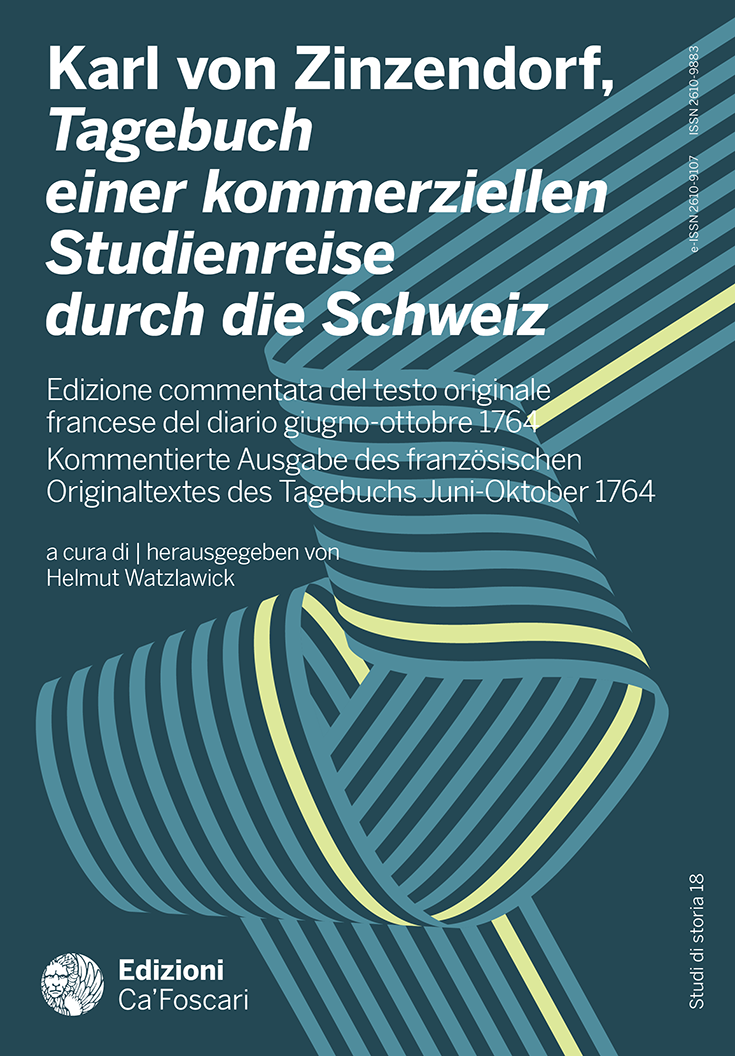
Karl von Zinzendorf, Tagebuch einer kommerziellen Studienreise durch die Schweiz
Oct. 4, 2023 -
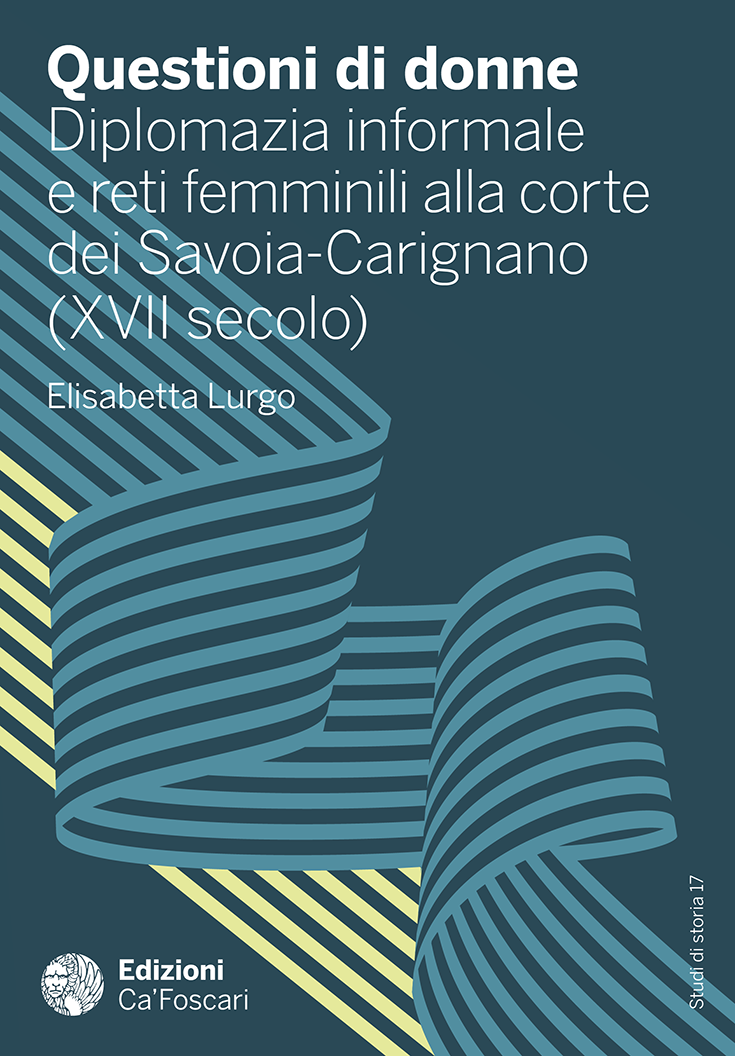
Women’s Matters
April 13, 2023 -
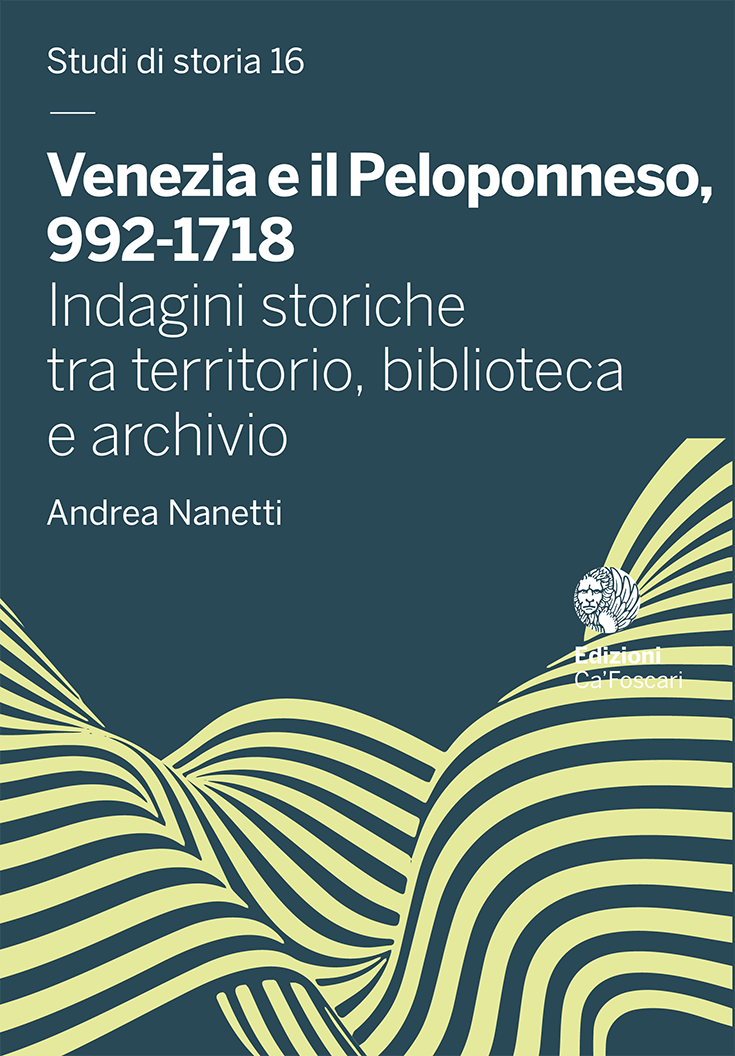
Venice and the Peloponnese, 992-1718
Dec. 20, 2021 -

Prelude to the Ghetto of Venice
Dec. 17, 2021 -
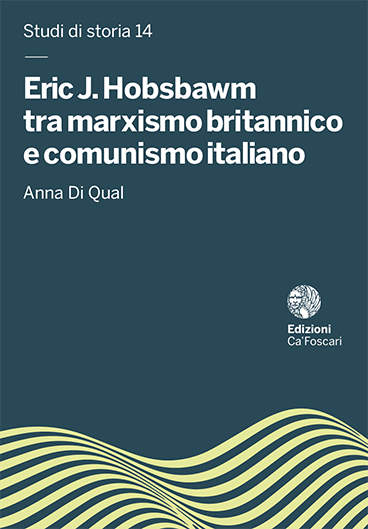
Eric J. Hobsbawm between British Marxism and Italian Communism
March 27, 2020 -
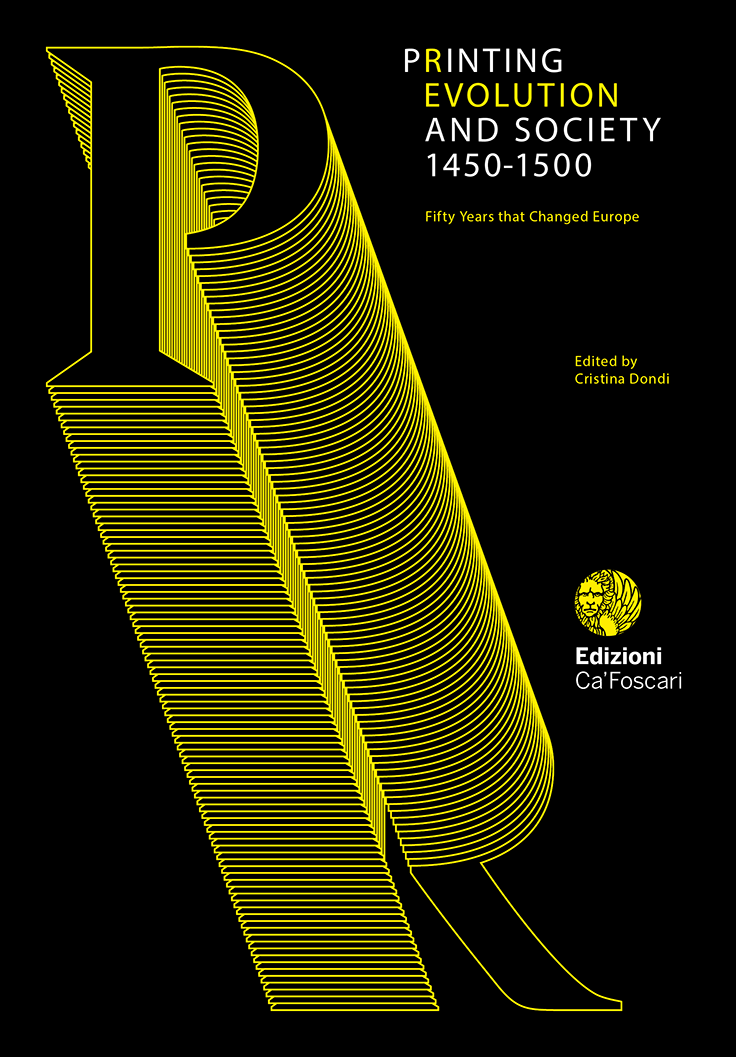
Printing R-Evolution and Society 1450-1500
Feb. 24, 2020 -
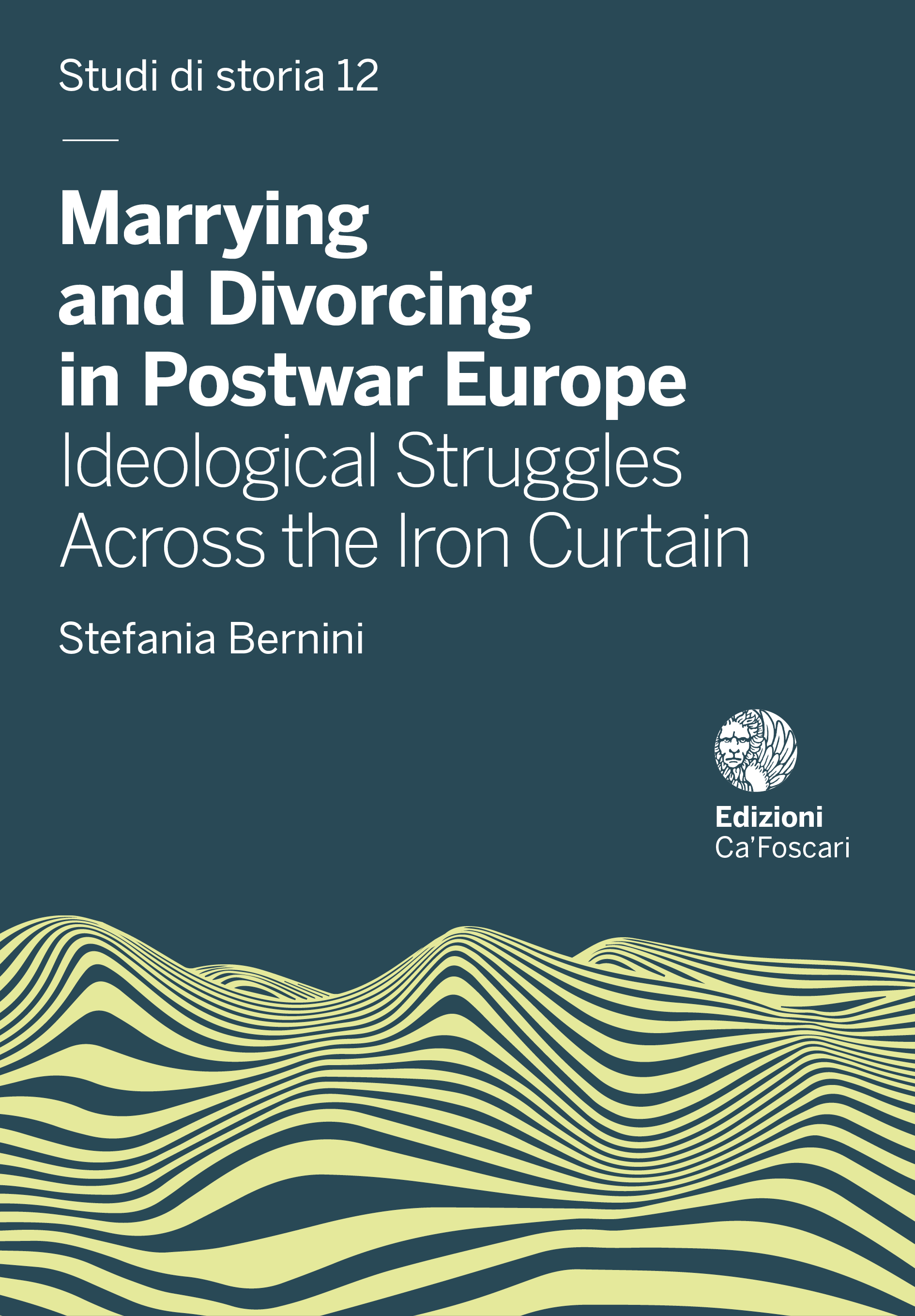
Marrying and Divorcing in Postwar Europe
Jan. 11, 2020 -

The Body, the Liturgy and the City
Nov. 26, 2019 -
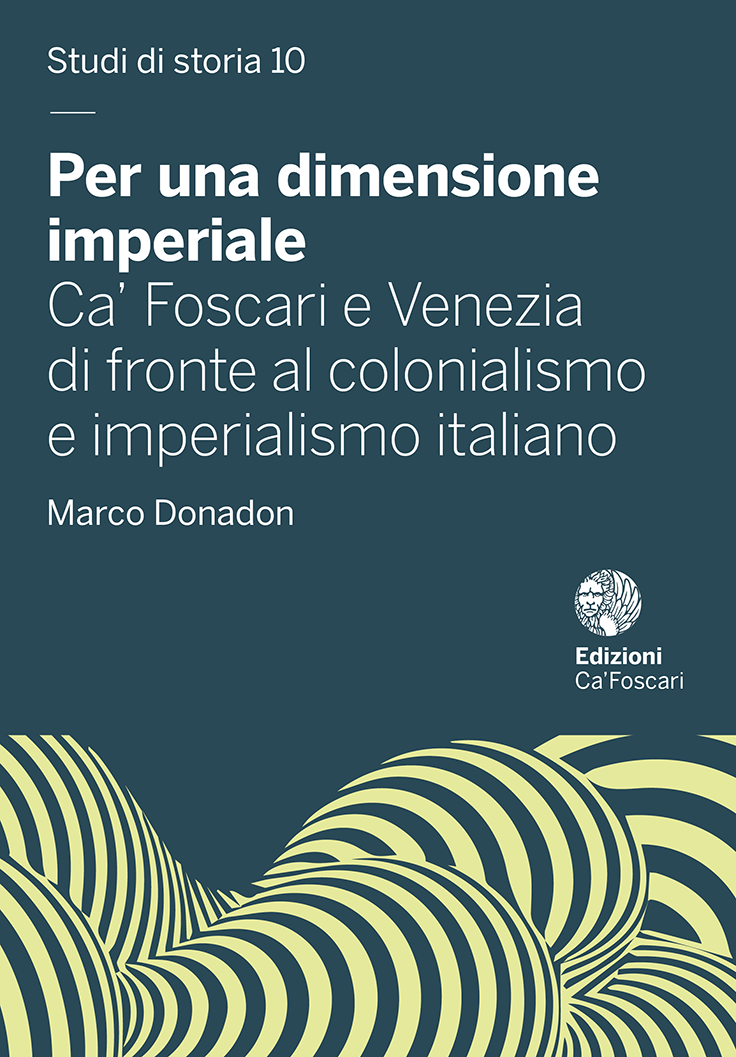
For an Imperial Dimension
Nov. 6, 2019 -

Catholic Antisocialism
Oct. 1, 2019 -

Genealogies and Geographies of Anti-Democracy in the European Crisis of the 1930s
May 31, 2019 -
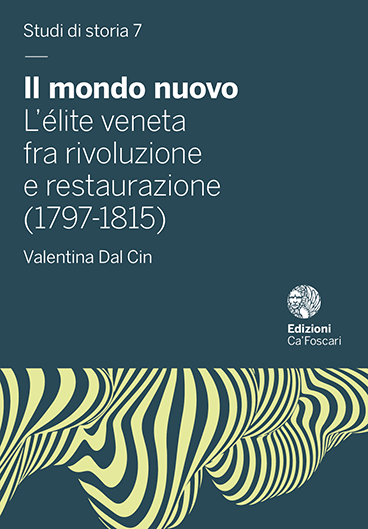
The New World
May 15, 2019 -

The Distant Gaze
Oct. 18, 2018 -
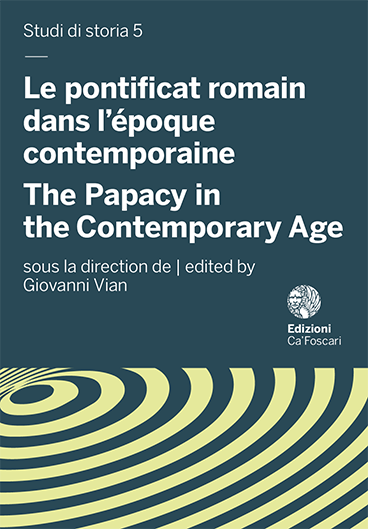
The Papacy in the Contemporary Age
June 6, 2018 -

Guide to the Graduation Thesis in History
May 19, 2017 -

The Reception and Application of the Encyclical Pascendi
March 29, 2017 -

Pius XI in the European crisis | Pius XI. im kontext der Europäischen Krise
Oct. 24, 2016 -

Historiae
Oct. 1, 2013
Laura Cerasi, Università Ca’ Foscari Venezia, Italia
Mario Infelise, Università Ca’ Foscari Venezia, Italia
Anna Rapetti, Università Ca’ Foscari Venezia, Italia
Advisory Board
Claus Arnold, Johannes Gutenberg-Universität in Mainz, Deutschland
Chiara Bonfiglioli, Università Ca’ Foscari Venezia, Italia
Francesco Borri, Università Ca’ Foscari Venezia, Italia
Marina Caffiero, Sapienza Università di Roma, Italia
Marco Cavarzere, Università Ca’ Foscari Venezia, Italia
Stefano Dall'Aglio, Università Ca’ Foscari Venezia, Italia
Giovanni Filoramo, Università degli Studi di Torino, Italia
Marco Fincardi, Alma Mater Studiorum - Università di Bologna, Italia
Stefano Gasparri, Università Ca’ Foscari Venezia, Italia
Mario Infelise, Università Ca’ Foscari Venezia, Italia
Vincenzo Lavenia, Alma Mater Studiorum - Università di Bologna, Italia
Simon Levis Sullam, Università Ca’ Foscari Venezia, Italia
Adelisa Malena, Università Ca’ Foscari Venezia, Italia
Alberto Masoero, Università degli Studi di Torino, Italia
Silvio Pons, Scuola Normale Superiore, Pisa, Italia
Antonella Salomoni, Università della Calabria, Cosenza, Italia
Enzo Traverso, Cornell University, Ithaca, USA
Chris Wickham, University of Oxford, UK
Use the form to submit a proposal.
Submit a proposalinput
Dipartimento di Studi Umanistici
Palazzo Malcanton Marcorà
Dorsoduro 3484/D
30123 Venezia
The book processing charges are regulated by the Publisher. For more information please visit: Publish with us.
The series adopts double-blind peer review as its benchmark.
Therefore, the published works have obtained a favourable opinion from at least two evaluators who are experts in the field, through an anonymous review process (double-blind peer review) conducted under the responsibility of the Scientific Direction of the series. The reviewers have no direct contact with the authors and belong to research institutions other than the one to which the series is affiliated.
In rarer cases, the series may adopt other types of referencing processes, such as open review, i.e. a non-anonymous review, or a mixed review involving a member of the Scientific Committee and an external evaluator. These options are determined by the specific characteristics of the research subject of the publication, or by other peculiar factors that determine the greater effectiveness of the alternatives indicated here.
Every work published in Studi di storia was accepted for publication by no less than two qualified reviewers as a result of a process of anonymous reviewing (double-blind peer review). The reviewers are independent of the authors and not affiliated with the same institution.
The Series’ Editor-in-Chief guarantees the proper execution of the peer review process for every book published in the Series.
Peer review policies for the different sections:
- Complete volume/issue: subject to peer review
- Monographs/essays/articles: subject to peer review
- Introductions, prefaces: no peer review
- Reviews: no peer review
- Editorials: no peer review
Ethical Code of Studi di storia
Studi di storia is a peer-reviewed scientific book series whose policy is inspired by the COPE (Committee on Publication Ethics) Ethical Code.
Publisher’s responsibilities
The Publisher must provide the Book Series with adequate resources and the guidance of experts, in order to carry out its role in the most professional way, aiming at the highest quality standard.
The Publisher must have a written agreement that defines the relationship with the owner of the Book Series and/or the Editor-in-Chief. The agreement must comply with the Code of Behavior for Publishers of Scientific Journals, as established by COPE.
The relationship among the Editor-in-Chief, the Advisory Board and the Publisher is based on the principle of publishing independence.
Editors’ responsibilities
The Editor-in-Chief and the Advisory Board of Studi di storia alone are responsible for the decision to publish the submitted works.
Submitted works, after having been checked for plagiarism by means of the anti-plagiarism software Compilatio that is used by the University and is made available to us, will be sent to at least two reviewers. Final acceptance presumes the implementation of possible amendments, as required by the reviewers and under the supervision of the Studi di storia Editor-in-Chief.
The Studi di storia Editor-in-Chief and Advisory Board must evaluate each submitted paper in compliance with the Book Seriesʼ policy, i.e. exclusively on the basis of its scientific content, without discrimination of race, sex, gender, creed, ethnic origin, citizenship, or the scientific, academic and political position of the Authors.
Allegations of misconduct
If the Studi di storia Editor-in-Chief and Advisory Board notice (or receive notifications of) mistakes or inaccuracies, conflict of interest or plagiarism in a published book, they will immediately warn the Author and the Publisher and will undertake the necessary actions to resolve the issue. They will do their best to correct the published content whenever they are informed that it contains scientific errors or that the authors have committed unethical or illegal acts in connection with their published work. If necessary, they will withdraw the book or publish a recantation.
All complaints are handled in accordance with the guidelines published by the COPE.
Concerns and complaints must be addressed to the following e-mail ecf_support@unive.it. The letter should contain the following information:
- complainant’s personal information;
- title, author(s), publication date, DOI;
- complaint(s);
- declaration that the complainant has no conflict of interest, or declaration of an actual or potential conflict of interest.
Authors’ responsibilities
Stylesheet
Authors must follow the Guidelines for Authors to be downloaded from the Studi di storia website.
Authors must explicitly state that their work is original in all its parts and that the submitted paper has not been previously published, nor submitted to other publishers, until the entire evaluation process is completed. Since no paper or book gets published without significant revision, earlier dissemination in conference proceedings or working papers does not preclude consideration for publication, but Authors are expected to fully disclose publication/dissemination of the material in other closely related publications, so that the overlap can be evaluated by the Studi di storia Editor-in-Chief.
Authorship
Authors are strongly encouraged to use their ORCID iD when submitting a manuscript. This will ensure the authors’ visibility and correct citation of their work.
Authorship must be correctly attributed; all those who have given a substantial contribution to the design, organisation and accomplishment of the research the book is based on, must be indicated as Co-Authors. Please ensure that: the order of the author names is correct; the names of all authors are present and correctly spelled, and that affiliations are up-to-date.
The respective roles of each co-author should be described in a footnote. The statement that all authors have approved the final version should be included in the disclosure.
Conflicts of interest and financing
Authors, under their own responsibility, must avoid any conflict of interest affecting the results obtained or the interpretations suggested. The Studi di storia Editor-in-Chief will give serious and careful consideration to suggestions of cases in which, due to possible conflict of interest, an Author’s work should not be reviewed by a specific scholar. Authors should indicate any financing agency or the project the book stems from.
Quotations
Authors must see to it that all works consulted be properly quoted. If works or words of others are used, they have to be properly paraphrased or duly quoted. Quotations between “double quotes” (or «angled quotation marks» if the text is written in a language other than English) must reproduce the exact wording of the source; under their own responsibility, Authors should carefully refrain from disguising a restyling of the source’s wording, as though it was the original formulation.
Any form of excessive, inappropriate or unnecessary self-citation, as well as any other form of citation manipulation, are strongly discouraged.
Ethical Committee
Whenever required, the research protocols must be authorised in advance by the Ethical Committee of Ca’ Foscari University of Venice.
Emendations
When Authors find a mistake or an inaccuracy in their own work, they must immediately warn the Studi di storia Editor-in-Chief, providing all the information needed to make the due adjustments.
Reviewers’ responsibilities
Goal
By means of the peer-review procedure, reviewers assist the Studi di storia Editor-in-Chief and Advisory Board in taking decisions on the submitted works. They are expected to offer the Authors suggestions as to possible adjustments aimed at improving their contribution submission.
Timing and conflicts of interest
If a reviewer does not feel up to the task of doing a given review, or if she/he is unable to read the work within the agreed schedule, she/he should notify the Studi di storia Editor-in-Chief. Reviewers must not accept texts for which there is a conflict of interest due to previous contributions or to a competition with a disclosed author (or with an author they believe to have identified).
Confidentiality
The content of the reviewed work must be considered confidential and must not be used without explicit authorisation by the Author, who is to be contacted via the editor-in-chief. Any confidential information obtained during the peer review process should not be used for other purposes.
Collaborative attitude
Reviewers should see themselves not as adversaries but as advocates for the field. Any comment must be done in a collaborative way and from an objective point of view. Reviewers should clearly motivate their comments and keep in mind the Golden Rule of Reviewing: “Review for others as you would have others review for you”.
Plagiarism
Reviewers should report any similarity or overlapping of the work under analysis with other works known to them.